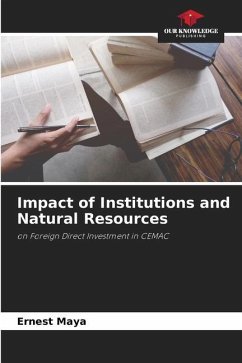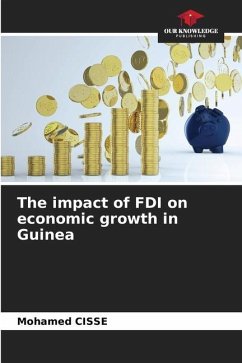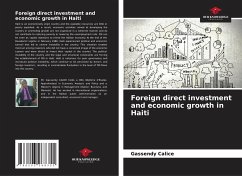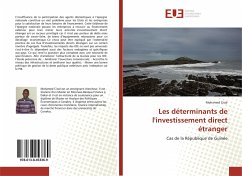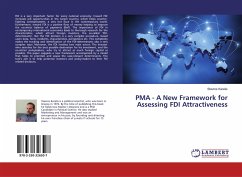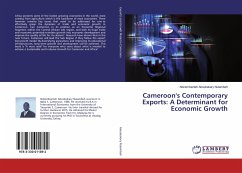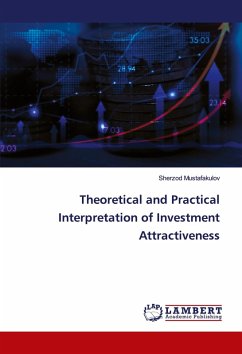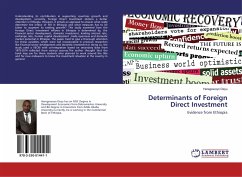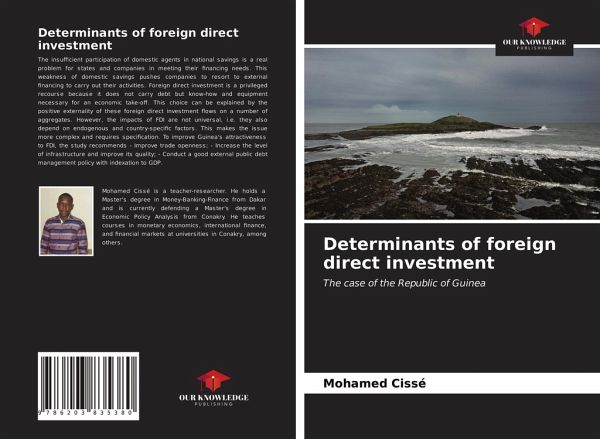
Determinants of foreign direct investment
The case of the Republic of Guinea
Versandkostenfrei!
Versandfertig in 6-10 Tagen
27,99 €
inkl. MwSt.

PAYBACK Punkte
14 °P sammeln!
The insufficient participation of domestic agents in national savings is a real problem for states and companies in meeting their financing needs. This weakness of domestic savings pushes companies to resort to external financing to carry out their activities. Foreign direct investment is a privileged recourse because it does not carry debt but know-how and equipment necessary for an economic take-off. This choice can be explained by the positive externality of these foreign direct investment flows on a number of aggregates. However, the impacts of FDI are not universal, i.e. they also depend ...
The insufficient participation of domestic agents in national savings is a real problem for states and companies in meeting their financing needs. This weakness of domestic savings pushes companies to resort to external financing to carry out their activities. Foreign direct investment is a privileged recourse because it does not carry debt but know-how and equipment necessary for an economic take-off. This choice can be explained by the positive externality of these foreign direct investment flows on a number of aggregates. However, the impacts of FDI are not universal, i.e. they also depend on endogenous and country-specific factors. This makes the issue more complex and requires specification. To improve Guinea's attractiveness to FDI, the study recommends - Improve trade openness; - Increase the level of infrastructure and improve its quality; - Conduct a good external public debt management policy with indexation to GDP.



